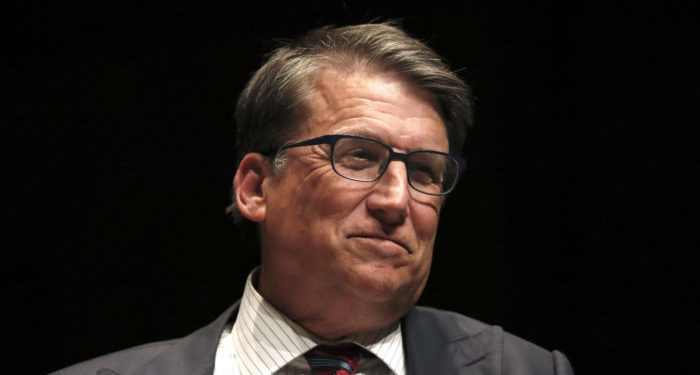(Headline USA) North Carolina’s highest court could severely restrict how politicians pursue claims of voter fraud.
The North Carolina Supreme Court is scheduled to hear oral arguments Thursday morning for Bouvier v. Porter — a suit that has lingered in state courts over the past seven years. The case centers around four voters from Guilford and Brunswick County who claim they were defamed by supporters of former Republican Gov. Pat McCrory in the aftermath of the 2016 election.
By a margin of 10,277 votes, Democratic Gov. Roy Cooper allegedly beat McCrory in the 2016 gubernatorial election. Afterward, McCrory supporters filed election protest petitions declaring voting irregularities had occurred, including accusations from Greensboro Republican official William Porter.
The election protests accused four people of voting twice in Guilford County, according to the plaintiffs’ 2017 lawsuit. Porter’s petition against three Guilford voters was dismissed for “lack of any evidence presented” and one protest in Brunswick County was withdrawn, according to an appeals court opinion.
The plaintiffs claimed they were defamed by Porter’s petition and sought $25,000 in damages, the complaint says.
It’s not clear if the case will be decided before the 2024 election, according to one of the plaintiffs’ lawyers.
More defendants were named in an amended complaint later that year, including law firm Holtzman Vogel Josefiak Torchinsky and the Pat McCrory Committee Legal Defense Fund. Another plaintiff from Brunswick County was also added to the case when one of the original voters voluntarily left the case, according to the amended complaint.
But the case before the N.C. Supreme Court won’t determine if the allegations defamed the voters. Instead, it focuses on whether the defendants had a form of immunity known as absolute privilege to make those claims.
Absolute privilege is a legal term used in defamation cases to outline circumstances where someone is shielded from liability for potentially defamatory statements. The privilege is typically granted in judicial and legislative proceedings.
A North Carolina appeals court gave plaintiffs a partial victory in 2021 by ruling that McCrory’s legal fund and the law firm did not have absolute privilege. They did rule, however, that Porter was granted the privilege because he operated within a “quasi-judicial election protest proceeding.”
But the defendants are arguing to the state Supreme Court bench that they should all have immunity. By not granting absolute privilege to all those involved, it prevents people concerned about elections from speaking “freely and fearlessly,” the brief read.
Bob Hunter, an attorney for the Pat McCrory Committee Legal Defense Fund, declined to comment.
The defendants didn’t function in a capacity that would grant them absolute privilege, as they “ghostwrote” the petitions for others to sign off on, plaintiff attorney and chief counsel for the Southern Coalition for Social Justice Jeff Loperfido said. If the N.C. Supreme Court sides with the defendants, he said voter fraud allegations may be used to deter voters or sow distrust in state electoral systems.
“It’s really about the fundamental right to vote and about whether individuals, North Carolina citizens, can be used as political pawns in this way and have their names tarnished without consequences,” said Loperfido, who joined the case in 2018.
Much has changed since the appeals ruling. One of the plaintiffs, Karen Niehans, died in early 2023, which caused her defamation claim to be dismissed, Loperfido said. The remaining plaintiffs are retirees, he said.
The N.C. Supreme Court’s makeup has also shifted since the appellate decision to comprise of five Republicans and two Democrats — both of whom had to recuse themselves after previously working as attorneys for the plaintiffs.
But a panel of all Republican judges doesn’t concern Loperfido because he views the case as nonpartisan.
“This could have been any losing candidate’s campaign effort to try to create enough smoke to delay certification or try to encourage the state board of election to review these protests in a certain way,” he said.
Now, both parties will await a decision after oral arguments conclude. Loperfido says that could take about six months, depending on whether the court wants to release an opinion after the 2024 election.
Adapted from reporting by the Associated Press

